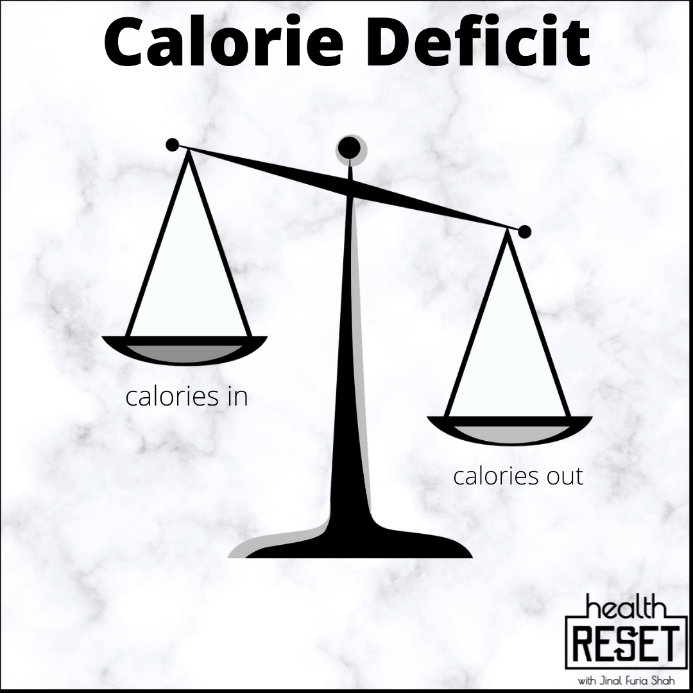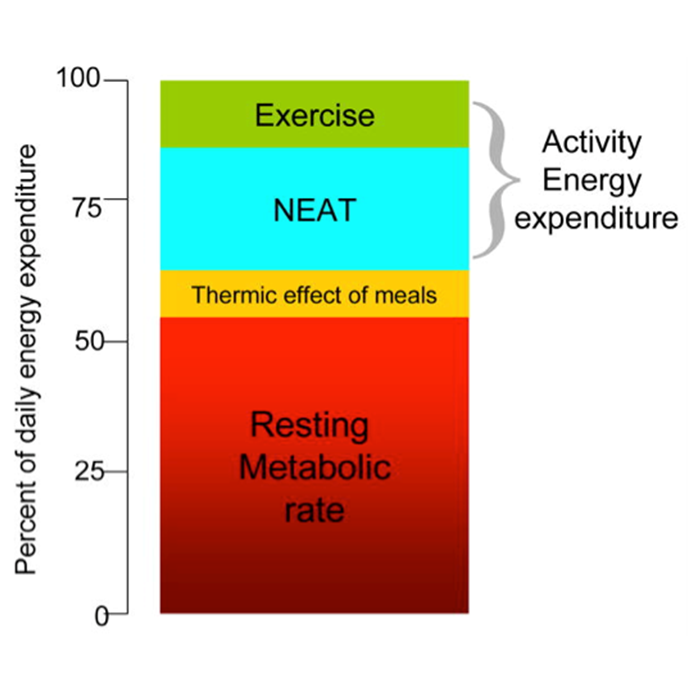
In simple words, when calories in are lesser than the calories out we are in a calorie deficit.

CALORIES IN is everything, you eat and drink.
CALORIES OUT is a bit tricky and consists of:
So, in order to maintain a calorie deficit: track the calories taken in and keep them lower than the calories burnt through BMR, EAT, TEF, & most importantly NEAT.
- Jinal Furia Shah